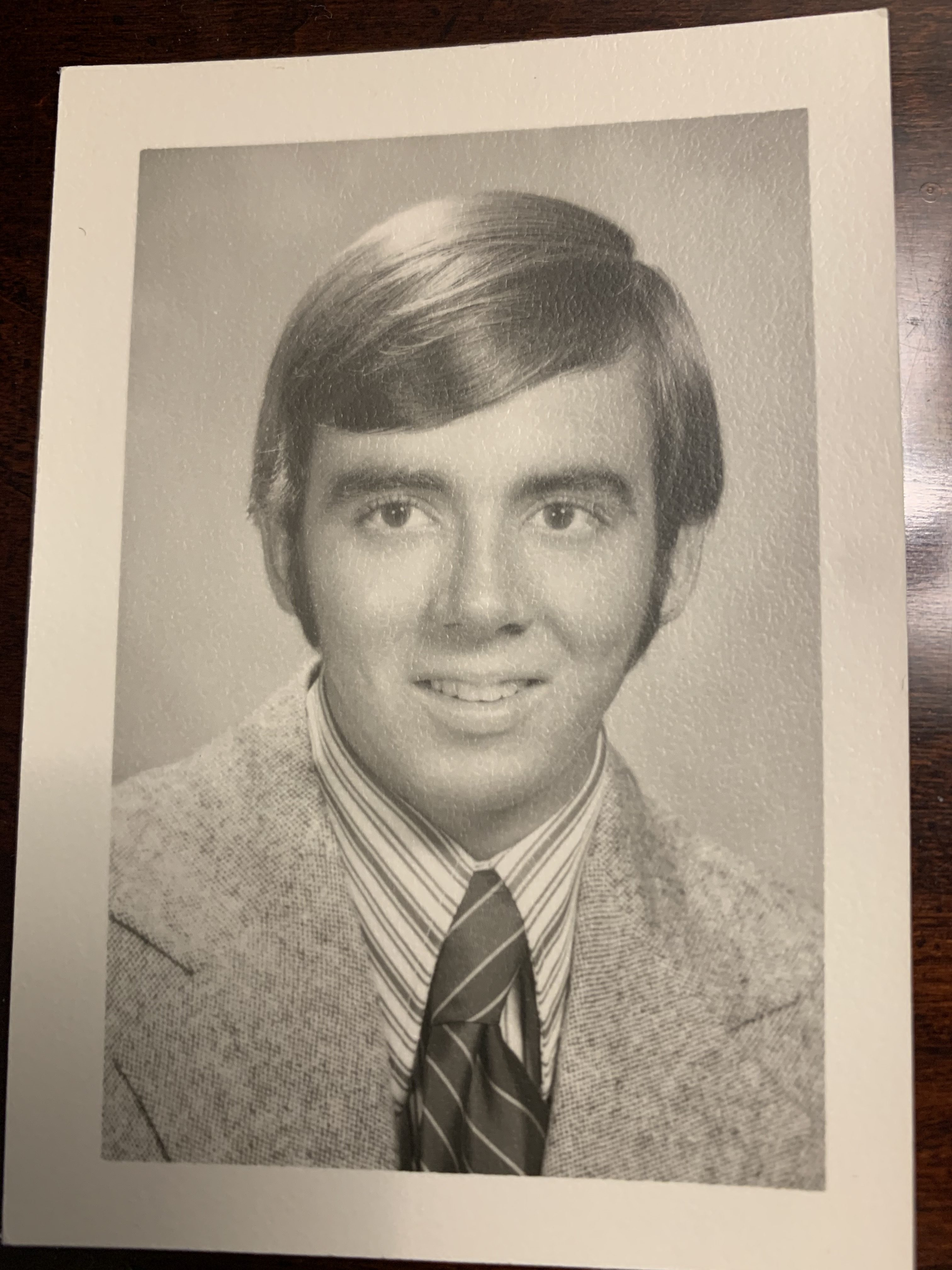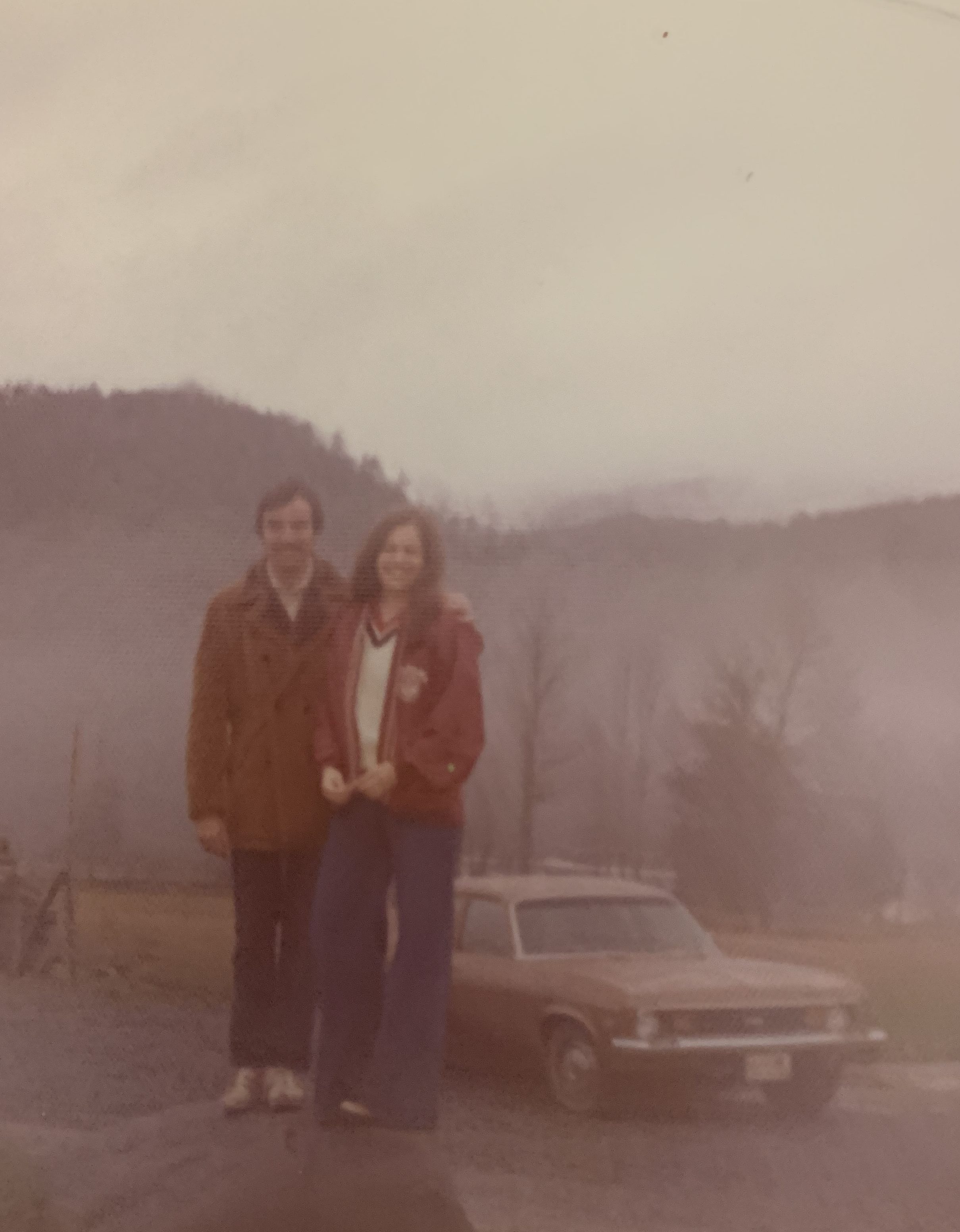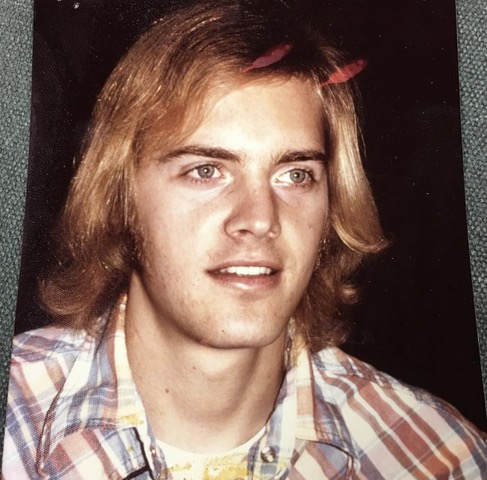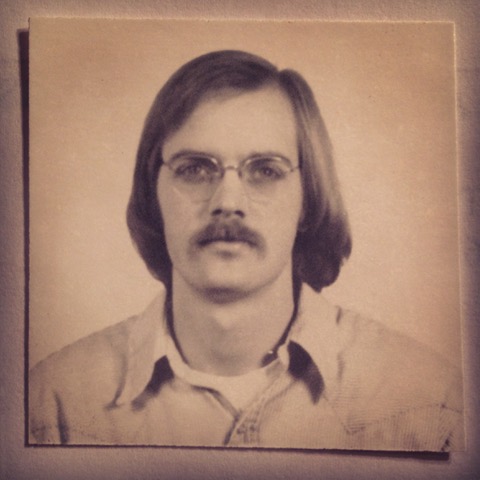It was a terrible year—destructive riots, political polarization, a sexual revolution, two high-profile assassinations, and a pandemic that killed more than 100,000 Americans. And on top of that, a confusing, endless war in Vietnam.
The similarities between 1968 and 2020 are so obvious nearly every major news outlet, from The Washington Post to The Atlantic to The Japan Times, has made the comparison. It’s hard to tell which year is worse. Today’s novel coronavirus has killed more than 200,000 Americans, and it seems the social isolation and economic recession are pushing up suicide rates.
But it’s hard to weigh that tragedy against garbage collectors crushed in their own truck, or against boys sent to war in the jungles of Southeast Asia.

“Everybody was scared,” said Georgia pastor Crawford Loritts, whose draft number was 150. He didn’t get called, but some of his friends did.
“It was a crazy time,” he told TGC. “You had all kinds of agony and pain, and I think everybody wanted to get a little calloused around their hearts, because how much could you take?”
“People everywhere are asking, ‘If God is God, why does he let all this happen?’” Christianity Today editorialized on January 3, 1969. “Christians are among those who are confused over the relevance of their faith to current problems. . . . God’s goodness, in short, is not always immediately apparent.”
It’s a little easier to see now, in hindsight.
“I don’t remember being hopeless,” said Loritts, who was in Bible college in Philadelphia. “It was an exciting time of spiritual growth for me, too. I think my relationship with Jesus anchored me. Although I felt angry and uncertain, I did not feel despair.”
He’s not the only one. TGC asked seven others how they handled the pressure of the draft, how they experienced God at work in the late 1960s, and how that time compares to 2020.
David Dockery, president of the International Alliance for Christian Education
David Dockery’s birthday is October 28, so his draft number was 10. That wasn’t good—for 1952 babies, like Dockery, numbers 1 through 95 were called up for compulsory service.

“I had to go and take a physical,” Dockery said. “I failed it because of severe respiratory issues. I was an F4, which meant permanently disqualified. I saluted the guy, said thank you, ran out the door, and went back to class.”
He remembers the assassination of Martin Luther King Jr., then of Bobby Kennedy, then the riots at the Democratic National Convention in Chicago. But the unrest didn’t stop when the calendar flipped to 1969––the year of Woodstock, the Charles Manson murders, and increased rioting on college campuses. In 1970, when the Ohio National Guard killed four Kent State University students at a demonstration, so many college students rallied that hundreds of universities closed early.
“University of Alabama students burned the ROTC building to the ground,” Dockery recalled. A senior in high school, he was doing his college visits, and chose to enroll at Alabama anyway.
At the same time, racial tensions were spiking. When a judge merged Dockery’s all-white high school with an all-black school, only a handful of white students showed up for graduation. (Dockery, who was the student body vice president, was one.) At his Southern Baptist church, the 1,000 members were splitting over whether to allow a black woman and her daughter to join.

“It was a dark time to be in your formative years,” he said. “The world seemed to be imploding. But another countercultural movement was coming out of that—the Jesus Movement.”
Dockery started hearing about this movement after his sophomore year in college—something spiritual was happening on the West Coast. That fall, it reached his campus, and hundreds of students gathered to sing Christian songs, give their testimonies, and study the Bible.
“It changed the Alabama campus,” he said. It also changed Dockery, who recommitted his life to Christ in 1972.
He can see two long-lasting results of those times––one was a generation of liberal students who grew up to be professors and administrators, gradually turning most of America’s universities toward the left. The other is a generation of Christian leaders whose faith was tested and solidified.
“We’ve had shaky times since then, but 2020 is the closest parallel to those years,” he said. “What is happening now is somewhat out of the playbook of that time. . . . We pray for a renewal of God’s Spirit in a surprising way, just like 50 years ago.”
Sam Storms, lead pastor at Bridgeway Church
Sam Storms had two draft numbers. The first was in the 300s, and he wasn’t old enough to serve. The next year he was old enough, and his number was 16.
“My dad said to stay in school and in ROTC or I’d be going to Vietnam,” Storms said. But during his physical, multiple surgeries from sports injuries got him an F4 designation. The army wouldn’t take him.

“If I’d been drafted, I would have willingly gone,” he said. “We all bought into the domino theory that if Vietnam fell, the rest of Southeast Asia fell. Research has shown it was a disaster from day one, but we didn’t know that. In my part of the country, we were all pro-war.”
His part of the country was small-town, southwest Oklahoma. Storms was largely isolated from the social unrest he was watching on television until he got to college. There, protesters came to his ROTC drills to taunt, throw things, and drizzle sunscreen on his spit-shined shoes. “We had to remain at attention,” Storms remembered. “We couldn’t react.”
The protests, combined with racial unrest and assassinations and widespread experimenting with sex, drugs, and rock-‘n’-roll, made it feel as if the world was coming apart.
“I remember thinking, This has got to be the end. Jesus has to come back, because it can’t get any worse,” Storms said. Hal Lindsey thought the same thing, releasing The Late Great Planet Earth––a comparison of current events to end-times Bible verses––in May 1970. It would sell more than 35 million copies.
That same summer, Storms headed to Lake Tahoe, California, on an evangelistic mission with Campus Crusade for Christ. He was a short-haired Southern Baptist in the world of long-haired hippies, sharing the gospel in front of casinos and at the gas station.
I remember thinking, This has got to be the end. Jesus has to come back, because it can’t get any worse.
“A lot of people were really hungry spiritually,” he told TGC. “I think the social pressures and the rebelling against traditional values actually opened people up to the gospel more than it closed them down. We saw a lot of fruit from that.”
Curious about the Jesus People he’d been hearing about, Storms drove to Berkley to find them.
“I was so impressed by their sacrificial, simple living,” he said. Sleeping on concrete, eating rice, and giving to the poor, “they were the antithesis of the prosperity gospel.” The experience changed his faith—not theologically, but with the realization that the body of believers is a lot bigger than he’d realized.
Many of them, like Storms, are now grandparents.
“The good news is the gospel is the only ultimate solution to all of the protests and slogans and hatred and divisions,” he said. “Maybe [the current unrest] is opening a door for the gospel to spread more powerfully in the days ahead. That’s what I’m hoping for.”
Carl Ellis, theology and culture professor at Reformed Theological Seminary
“I just assumed I’d have to go to war,” recalls Carl Ellis. “I was willing to serve.” He planned to enlist in the Air Force like his father, a Tuskegee airman in World War II.
But when the time came for Ellis to get a physical, the military sent the paperwork to the wrong address. After three attempts to contact him, the government figured he was a draft dodger, revoked his student deferment, and sent the FBI after him. By the time everything was settled, Ellis didn’t have to go to Vietnam, but he’d also lost all trust for the government.
“I was always taught America was on the side of right,” he said. “In the war movies, we were always the good guys.” But then Emmett Till was lynched, and President Kennedy was shot, and American soldiers began burning villages in Vietnam.
“We were disillusioned,” he said. “We wanted to get rid of all that and have something genuine. . . . We felt that if we could get in power, we could make it right.”
He chuckles at that now, knowing better. But then as now, for those who aren’t part of the establishment, the possibility of change is more exhilarating than scary.
Ellis was at a historically black college, first as a student and then with a campus ministry. He was growing in his faith, reading the Bible and Francis Schaeffer, debating black militants, and discipling Jesus People. Eventually, he’d read his way to the sovereignty of God, then to Reformed theology.
Today’s angst feels different from 1968, he told TGC. “It’s one thing to protest against policy. It’s another thing to protest against the very foundations of the country or of its values. Today, we are dumping our core value system.
Today’s angst feels different from 1968, he told TGC. “It’s one thing to protest against policy. It’s another thing to protest against the very foundations of the country or of its values. Today, we are dumping our core value system.”
It might feel like liberation for a moment, but without agreed-upon values, constructive change is impossible, he said. For example, the civil-rights movement only worked because there was a general consensus around historically biblical morals, the Constitution, and logic. Without them, things would’ve stayed the same or devolved even further.
But that doesn’t mean God’s hands are tied. Ellis is already seeing some sparks of religious renewal among those he knows.
“Some people have felt uneasy about things, so they’ve come to [my wife, Karen, and me] and asked questions,” he said. “There’s a growing number of people who are praying a lot. That’s what we’re most excited about. We see the beginnings of a revival going on.”
Larry Lloyd, founder and president of the Memphis Leadership Foundation
Larry Lloyd’s draft number wasn’t called. But even if it was, he wasn’t planning to go to Vietnam. “I had determined to either go to Canada or be a conscientious objector,” he said.
Lloyd grew up in a conservative Christian home in Memphis, but his integrated high school basketball team gave him plenty of perspective on the African American experience. “My family thought I was crazy,” he said.
Lloyd was on the baseball field when he heard the emergency sirens responding to Martin Luther King Jr.’s assassination. (“He was a hero of mine.”) He spent two years wrestling with the fundamentalist Christianity of his family and the gospel of the social left.
“I wondered if the gospel was real or just made in the image of whoever was preaching,” Lloyd said. Eventually he decided “there had to be a radical middle where the Jesus in Scripture was in fact the Jesus of history.”
He remembers a Young Life summer camp in Colorado, where college kids with long hair talked about a Jesus who cared for the poor and oppressed. Impressed, he joined the Young Life staff and then moved into the inner city of Memphis. Today, he’s an assistant pastor at Hope Presbyterian Church and president of the Memphis Leadership Foundation.
In between the economic and racial and social and physical struggles of 2020, “I see some aspects of hope,” he said. “I see a tremendous outpouring here in Memphis of churches helping those who are losing their jobs. I serve on the board of Christ Community Health Services, which has seven clinics in medical deserts, and has tested 23,000 people for COVID. . . . There are some elements of hope out there.”
Ray Ortlund, president of Renewal Ministries
“I was indeed drafted,” Ray Ortlund told TGC. “It was inevitable.”
It was—his draft number was 8. But since he’d been accepted at Dallas Theological Seminary on an ordination track, he received a ministerial deferment.

“I’m no historian or sociologist, but something cracked way down at the foundational level in our country in the late ‘60s,” he said.
The radicalization was spurred by violence—the assassinations, the riots, the war. Less than four months after the “peace and love” Woodstock concert, a second giant rock concert in California descended into chaos, with dozens of injuries and four deaths (including one African American 18-year-old stabbed to death by the Hell’s Angels providing security).
“If the name ‘Woodstock’ has come to denote the flowering of one phase of the youth culture, ‘Altamont’ has come to mean the end of it,” Esquire reported in 1970. The utopian dream ended in Lord of the Flies.
“Connecting the dots between 1968 and 2020 is a fruitful line of thinking, because we have circled back to the same uncannily familiar moment of national intensity and upheaval,” he said. One example: the clear good guys and bad guys of World War II weren’t as clear with Vietnam––nor are they today. “Who are the heroes now?”

During the early ‘70s, Ortlund flew back and forth between Wheaton College and his California home, where he was starting to see something take shape.
“The Jesus Movement was the clearest experience I’ve ever had of a mass miracle,” he told TGC. “It was the sudden and improbable conversion of thousands of non-churchy, politically and culturally radicalized, sexually adventurous, crazy California kids suddenly running toward Jesus—not because people told them to, but because they were too happy about Jesus not to.”
He remembers the circus tent that Calvary Chapel Costa Mesa put up in the parking lot to make room for the crowds of kids. “The church went from hundreds to thousands in months,” Ortlund said. “The preaching wasn’t theologically sophisticated—it was about the love of God, the blood of Christ, and the joy of the Holy Spirit.”
“Young people were aching for forgiveness, for community, for a clean feeling––after a while, being degraded gets tiring,” Ortlund said. “I remember sitting on a concrete-patio area outside, off the sanctuary, just able to see between all the other kids to the leaders in the front. It was magnetic.”
Young people were aching for forgiveness, for community, for a clean feeling––after a while, being degraded gets tiring.
In his desk drawer, he still keeps some of the buttons he wore on his shirts then—one says “Jesus,” another is a picture of Jesus, a third says “Goyim for Jesus” (playing off “Jews for Jesus”).
The enthusiasm of the Jesus People sparked a global movement. And while it sometimes veered dangerously into prosperity theology, it also renewed established churches, prompted church plants, and gave rise to Christian study centers, Ortlund said. On top of that, it added thousands of new missionaries and a whole new Christian music scene.
“Joy is a simple but surprisingly effective way to advance the gospel,” he said. “So is being a community that others want to be part of. . . . Whatever 2020 is, we’ve been here before, and Jesus met us in this very place.”
Sandy Willson, pastor emeritus at Second Presbyterian Church
Sandy Willson can’t exactly remember his draft number—“it was not real high but not real low”—because it didn’t really matter. He’d broken his neck and back in a serious car accident, and knew he’d be 4F.
“The draft didn’t affect me, but it did affect my college friends for sure,” he said. “It was hanging over people, and certainly threw a lot of fuel on the fire.”

He remembers the sharp split between those for the war and those against it, those for civil rights and those against it, those for protests and those against it. Will we ever get through this? he thought.
2020 also feels polarized, he said. “The difference is, back then there was a more respectable middle,” he said. Bills passed with bipartisan support. Both the right and left supported their arguments with the Bible and the Constitution. “We agreed there was a standard somewhere . . . a centripetal force holding things together.”
So Martin Luther King Jr. based his arguments on Scripture, which helped them land among mainline denominations. But they still didn’t persuade many conservative Southern churches.
“Your conscience tells you your congregation’s main way of thinking is not exactly right,” Willson said. “But they’re not going to listen to you; if you spoke up, they’d be mad at you. If you’re the pastor, you might get fired. . . . It makes you wonder if some of those churches really knew what the Bible was saying or if they were willing to embrace it. Those were tough days.”
Willson wasn’t a Christian then. “I had a critical mind, so I could see problems and inconsistencies [in the world],” he said. “I just didn’t have a solution for them. It was chaos, and I couldn’t see a way out.”
He didn’t notice the Jesus Movement at all. “If they were on campus, I would’ve walked right past them.”
A few years later, though, he popped into church with his family for old times’ sake. He tried to duck out quickly after the service, but the elder volunteering in the nursery out-argued him into attending coffee time. (“I need to feed my son.” “I’ll feed him.” “He needs a nap.” “He can sleep here.” “He needs his diaper changed.” “We’re happy to do that.”) Willson loved socializing over coffee so much he never missed another Sunday, and six weeks later he got saved. Three years later he enrolled in seminary.
“I became a Christian in the year of the evangelical,” Willson said. That was the title Gallup and Newsweek gave 1976 when a poll showed 34 percent of Americans were “born again,” President Gerald Ford attended the combined National Association of Evangelicals and National Religious Broadcasters gathering, Charles Colson released his memoir Born Again fresh after his Watergate prison stint, and openly “born again” Jimmy Carter was elected president. In 1977, Time ran a cover story titled “The Evangelicals: New Empire of Faith.”
“Evangelicals suddenly find themselves number one on the North American religious scene,” Christianity Today reported in October 1976. “Thanks to media visibility, they are seizing the public imagination. There is unprecedented interest in many aspects of the evangelical outlook. . . . Most of the nation’s great churches are now evangelical. Hundreds of Christian radio stations have been established in recent years. Sales of Bibles and evangelical books are booming.”
Just eight years after 1968, and about four years after the Jesus Movement revved up, “1976 was a fabulous year,” Willson said.
Crawford Loritts, senior pastor at Fellowship Bible Church
Back in Philadelphia, Loritts was graduating from college just as the Jesus Movement was taking off. He remembers the excitement and momentum, and that gives him hope for 2020.
“I’m strangely excited about this time,” he said. “I really believe—similar to what was taking place from 1968 to 1972—all the despair, confusion, and existentialism permeating the society is God allowing us to be hemmed in.”
You can only get high, or have unrestricted sex, or light things on fire for so long, until you find out it’s not as fulfilling as it promised to be, he said. A different president, or different laws, or a different Supreme Court justice isn’t going to solve our sin problem.
“I believe God is orchestrating another moment in history where purity and the wonder of the gospel is shining brightly against the dilemmas and darkness and confusion,” Loritts told TGC. “It might take a little more pain, but that doesn’t mean we stop being courageous.”
Read More
The Gospel Coalition
